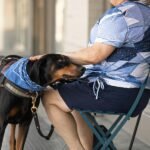Owning a dog is a source of joy and companionship, but it also comes with responsibilities. Among the most serious concerns for pet owners is the legal liability that can arise from a dog bite. When a dog injures someone, the legal ramifications can be significant, leading to financial and reputational consequences. Understanding the risks and legal obligations can help you protect yourself, your pet, and others.
Understanding Liability in Dog Bite Cases
Dog bite cases fall under various legal principles, with liability often determined by state laws. In many jurisdictions, pet owners are held responsible for injuries caused by their dogs, whether the bite occurs on their property or in public spaces.
Strict Liability vs. Negligence
Some states impose strict liability on dog owners, meaning they are automatically responsible for injuries their dog causes, regardless of prior behavior. Other states follow negligence-based laws, requiring the injured party to prove that the owner failed to take reasonable precautions to prevent the attack.
A premises liability attorney can help determine whether an owner failed to maintain a safe environment, leading to a dog bite injury. Premises liability laws can hold property owners accountable if they failed to take reasonable steps to prevent foreseeable harm.
The “One-Bite” Rule
Some states follow the “one-bite” rule, which allows owners to avoid liability if they had no reason to believe their dog was dangerous. This means that first-time incidents may not automatically result in legal consequences. If the dog had previously bitten someone, displayed aggressive behavior, or posed a known risk, the owner may be held responsible for any future incidents, including those occurring on private property or in public spaces.
Legal Consequences for Dog Owners
The aftermath of a dog bite can involve civil lawsuits, criminal charges, and even the removal of the dog. These consequences vary based on the severity of the injury and the circumstances surrounding the attack.
Civil Liability: Dog Bite Injury Claims
Victims of dog bites can pursue dog bite injury claims to recover damages such as medical expenses, lost wages, and pain and suffering.
Courts may award compensation for:
- Emergency medical treatment and ongoing healthcare costs
- Psychological trauma and emotional distress
- Permanent scarring or disability resulting from the attack
- Lost income due to time away from work
If the attack was particularly severe, courts may impose punitive damages to discourage negligent behavior. A premises liability attorney can assist victims in navigating the legal process to secure appropriate compensation.
Criminal Liability for Dog Owners
In some cases, dog owners may face criminal charges. If the owner was aware of the dog’s aggressive tendencies and failed to take precautions, he or she could be charged with reckless endangerment. Some states impose fines or even jail time for severe or fatal attacks.
Local ordinances may mandate specific restrictions, such as requiring dangerous dogs to be muzzled in public or confined to secure enclosures. Violating these regulations can result in further legal consequences.
Euthanasia and Removal Orders
Courts may order the removal or euthanasia of a dog deemed dangerous, especially if it has attacked multiple times or caused severe injuries. This decision is typically made after a thorough investigation and may involve testimony from veterinarians, animal behavior experts, and witnesses. While this is often a last resort, it underscores the importance of responsible pet ownership, adherence to local animal control laws, and taking preventative measures such as training, proper containment, and following leash regulations. In some cases, owners may appeal the decision or be required to complete specific conditions, such as behavioral rehabilitation programs, to prevent euthanasia.
Preventing Legal Issues as a Dog Owner
Taking proactive steps to prevent dog bites can help owners avoid legal trouble. Responsible pet ownership involves proper training, socialization, and adhering to local laws.
Training and Socialization
Ensuring a dog is well-trained and socialized reduces the risk of aggressive behavior and enhances overall obedience. Training should begin as early as possible, incorporating basic commands such as sit, stay, and come. Owners should expose their pets to various environments, people, and other animals from an early age to promote positive interactions and minimize fear-based aggression.
Securing Property and Public Interaction
Proper fencing, warning signs, and leashes can help prevent incidents and ensure public safety. A secure yard with high, well-maintained fencing can keep dogs contained and prevent accidental escapes. Warning signs alert visitors to the presence of a dog, reducing the risk of unexpected encounters. Leash laws vary by location, but keeping a dog on a sturdy, well-fitted leash in public spaces is a crucial step in preventing unwanted interactions. If a dog has shown aggressive tendencies, additional precautions such as muzzles, harnesses, or controlled introductions to new environments can prevent attacks and demonstrate responsible ownership. Supervised interactions with unfamiliar people and animals help reinforce good behavior and mitigate risks.
Understanding Local and State Laws
Different jurisdictions have varying laws regarding dog ownership and liability, and failing to comply with these regulations can result in fines or legal action. Staying informed about leash laws, breed restrictions, and reporting requirements can help prevent legal complications. Some areas enforce strict leash requirements in public spaces, while others impose breed-specific legislation that may limit ownership of certain dog breeds. Municipalities may require dog owners to carry liability insurance for certain breeds or provide proof of vaccinations and licensing. Understanding these laws helps ensure compliance and protects both the pet and the owner from unnecessary legal trouble. In the event of a dog bite, knowing the proper reporting procedures and liability standards can make a significant difference in the outcome of any legal proceedings.
What to Do if Your Dog Bites Someone
Even responsible dog owners can find themselves in a situation where their pet bites someone. Knowing how to respond appropriately can help mitigate legal consequences and demonstrate accountability.
Seek Immediate Medical Assistance
If a bite occurs, ensuring the victim receives prompt medical care is essential. Dog bites can lead to infections and other complications, so professional treatment is necessary.
Exchange Information and Report the Incident
Providing contact information to the victim and reporting the incident to local animal control authorities demonstrates cooperation. Some jurisdictions require mandatory reporting of dog bites.
Contact a Premises Liability Attorney
If you are facing legal action due to a dog bite, consulting an attorney with experience in dog bite injury claims can help protect your rights. Legal professionals can assess the situation, build a defense, and negotiate settlements when necessary.
How a Bog Bite Lawyer Can Help You
Owning a dog is a rewarding experience, but it comes with legal responsibilities. Understanding the consequences of dog bites and taking preventative measures can protect both pet owners and the community. If a dog bite incident does occur, seeking legal guidance from a premises liability attorney can make a significant difference in the outcome of your dog bite injury claim. Taking the right steps before and after an incident can help ensure responsible pet ownership while minimizing legal risks.











